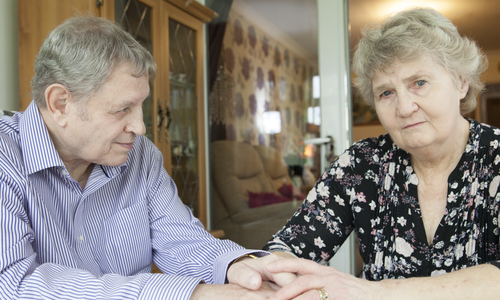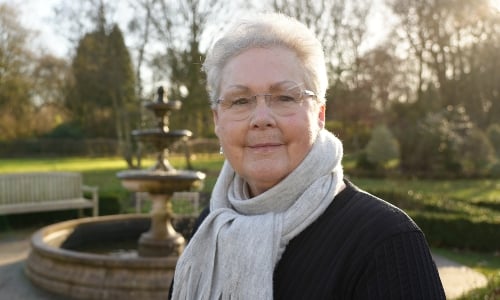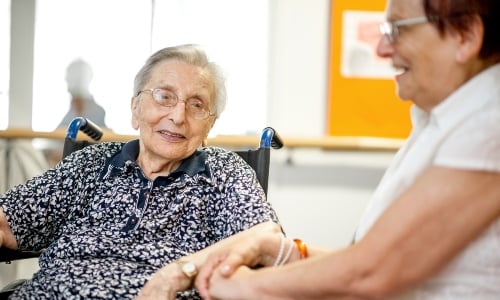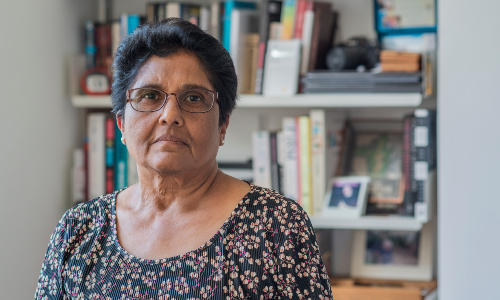Carers Week is an annual campaign that aims to raise awareness of unpaid carers by shining a light on the challenges they face and recognise the massive contributions they make for families and communities throughout the UK.
This year’s theme, ‘Caring About Equality’, highlights the inequalities unpaid carers face and what is needed to create a fairer society for carers. Inequalities can create negative impacts for carers’ lives, including putting them at increased risk of financial hardship, social isolation, and poor mental and physical health.
The impact of care
Care affects so many of us and many people end up becoming unpaid carers every day. Research in this year’s Carers Week report suggests there are 11.9 million people currently providing unpaid support to family members and friends who are ill, disabled, or older.
Caring can have a substantial impact and can affect many aspects of life, from work and finances to health and relationships. The cost of the support unpaid carers provide is also significant. Research from Centre for Care and Carers UK found the economic value of the support provided by unpaid carers amounted to £184 billion a year.
This Carers Week, together with partner charities, we are calling for greater equality for all carers and for the Government to commit to introducing a National Carers Strategy that helps to address the challenges carers face.
Claire’s story
Claire has spent years caring for her mum who has dementia. "Just at the start of COVID, I moved from my house to live with Mum,” explains Claire. “Before, she would come stay at mine or my sister's and we’d stay at hers. I’ve not lived in my own house for five years now and only get to go back odd days and nights.”
Providing care does often take a toll on the one providing care, as Claire reveals. “I’m generally fit and healthy but the past few years looking after Mum has had an impact on my health. I have musculoskeletal problems including some back issues. Last year, Mum had a tumble which pulled on my shoulder, and I've needed to have quite a lot of physio.”
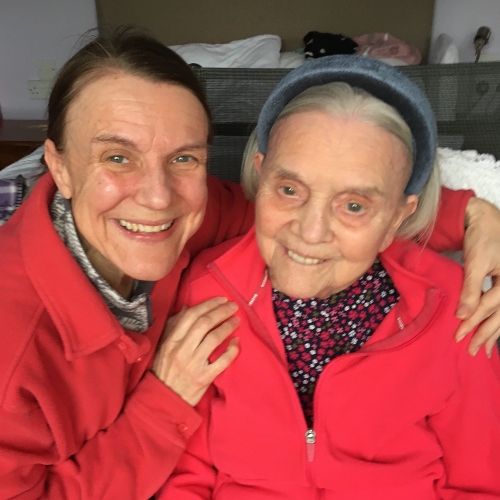
The demands of caring have also impacted Claire’s ability to look after her own health and wellbeing. “I’ve postponed my medical appointments at times because there hasn’t been agency staff or family available to help care for mum,” she explains. “I’m juggling a lot in my life and trying to get a balance, but it’s hard.”
Claire also highlights the tiredness and fatigue that comes with meeting her mother’s care needs 24/7. “On occasion I’ve turned down going out with friends because I’ve been too tired. I always feel if I could get a full night's sleep it would help.”
Claire’s sister would travel over every Tuesday to help care for their mother while Claire worked and stay over a few weekends each year to allow Claire time to get some well-earned rest. Since June last year, however, Claire’s sister hasn’t been able to provide this support due to her own health issues.
Claire has had to reduce her working hours to provide care for her mother and highlights the impact this has had on her earnings. “Working reduced hours has meant a massive loss of earnings and effect on my pension,” she reveals. “You feel in life that you work hard and as you get older maybe you’ll be in a better financial situation. I feel as I'm getting older, I’m having to budget more because I haven't got the same disposable income. Last year I spoke to HR at work and they did a summary of my lost earnings from the last 11 years since my father died and with me caring for mum. It was approximately £135,000.”
Knowing where to turn
When someone becomes an unpaid carer, it can be difficult to know where to find information and support, including what benefits they could access. “I think it needs to be clearer what is available,” says Claire. "Rather than things being all over the place, it needs to be in one place because when you become a carer you need practical, emotional and financial help.”
Unpaid carers often juggle extra roles alongside their normal day-to-day responsibilities. “There are so many roles when you become a carer to a person like Mum with dementia, especially when somebody's lost capacity,” says Claire. “Thankfully, we got a lot of things in place but it’s many roles that I think sometimes people forget about.”
Despite the challenges, Claire points out the many positive aspects of caring. “There are many challenges in being a carer, but I try to see the positives and have quality time with Mum. Together we join a weekly music Zoom group, I try to take Mum to church to enjoy the hymns and when possible organised music events. Music can bring out a lot of joy in Mum and seeing this positive effect makes me happy.” Claire also highlighted the support from Age UK Salford and Trafford and the Empowered Connectors group, which provides support to carers: “If I summarised it in one word, I would say they have been amazing.”
Unpaid carers come up against many inequalities and it’s important that we do what we can to address the disadvantages they face and ensure they have the same life opportunities as those without caring responsibilities.
Support for carers
If you're caring for a loved one, we have information and advice that can help.



